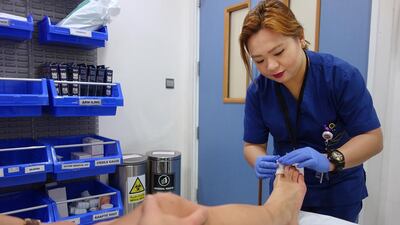Our story in yesterday’s paper detailing how A&E staff face abuse from members of the public is both shocking and in some ways unsurprising. Emergency rooms are stressful places: most don’t go there by choice and those who do are usually suffering from conditions that are painful and frightening and have made them finally seek help.
In such circumstances it is understandable that patients or family members become stressed at seeing other patients treated ahead of them. But that is the importance of the triage system, which allocates care based on the severity of the emergency. Few, in their calmer moments, would believe that they should be seen with a severe toothache ahead of the man having a heart attack. But late at night, in pain, patients think differently.
That does not, of course, excuse the verbal, and occasionally physical, abuse that staff in A&E face. As this newspaper has argued before, those who severely abuse frontline staff should be dealt with by the courts.
Yet part of the reason for the abuse in the first place is the strain that is placed on the A&E departments. A culture has grown up in the UAE of seeing the emergency room as the first port of call in the healthcare system, especially at night. This was partly formed when there were fewer primary care clinics, and is related to the cost of treatment: A&E is free, but primary care clinics charge a fee.
Statistics are difficult to come by, but this year one hospital in Ajman released details: of the 58,204 people who sought treatment at the A&E department of Sheikh Khalifa Hospital in Ajman, around 40 per cent were non-emergency illnesses such as colds and coughs. That is an astonishing number and adds up to a considerable strain on the resources of the A &E department.
A cultural change is needed. The starting point must be more primary care clinics that can be accessed easily at all hours. Then patients must be educated that minor ailments should be seen either through a GP or at a clinic. And finally, there must be gentle encouragement of those who persist in turning up at A&E that they won’t be dealt with there.
Naturally, there will be those who are upset. But A&E needs to be kept clear for when patients – and it could one day be the person with the heavy cold – really need it.

